Depression is a common mood disorder that can negatively affect how you feel, think and act, often causing a general loss of interest in things and a persistent feeling of sadness. Many people believe that they can lift their mood with herbal teas. This might work for you, too, but understand that depression is a severe medical illness. If depression is interfering with your daily life, talk with your doctor. Tea has long been a natural remedy to reduce stress and unwind after a long day. The act of pouring a steamy hot cup of tea and sipping while enjoying your favorite novel or lounging in a comfy chair helps boost mood and decrease stress. Scientific research also shows that tea contains powerful ingredients that can target anxiety and depression on a chemical level.
Tea is not a replacement for prescription medications used to treat severe cases of depression or anxiety. Teas may also interact with certain drugs and other herbal supplements, including those from St. John’s Wort. Consult with a physician before trying herbal teas or true teas to treat your symptoms.
While tea is not a cure, it can help mitigate some of the symptoms associated with generalized anxiety disorder and stress. It offers a natural calming effect and enables you to take a moment out of the day to unwind and focus on what matters most.
Drinking tea can also help boost overall health and well-being, so you feel your best. The stress-relief properties of this healthy elixir can help you unwind while the delicious flavors are sure to please your palette. Simply steep a few tea bags or loose leaf teas throughout the day and toast to better relaxation and overall calm.
We’ve put together a list of the best teas for stress and depression to help you relax and feel your best. From minty and floral-herbal teas to famously healthy green teas, you’re sure to find a tea that you love that can help you destress.
1. Lemon Balm Tea for Anxiety and Depression
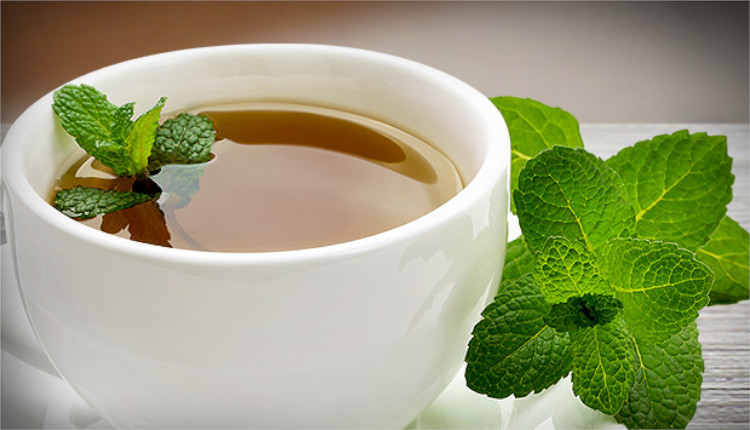
A mint relative with a lemony fragrance, lemon balm is a widely used treatment for sleeplessness, anxiety, and depression. It appears to work by boosting GABA, a neurotransmitter that soothes stress. In one 2011 study, lemon balm extract was shown to help mild to moderate anxiety and insomnia. Researchers in a 2018 study found that a lemon balm supplement reduced anxiety, depression, stress, and insomnia in people with a heart condition called angina. Lemon balm tea belongs to the mint family and offers a vibrant flavor with lemon undertones.
A study published in Neurochemical Research found that lemon balm tea increased GABA levels and decreased corticosterone levels, including cortisol levels. GABA is a neurotransmitter that induces relaxation, while cortisol is known as the human stress hormone. This research shows that drinking lemon balm tea may help treat anxiety symptoms on a chemical level in the brain.
A second study found that lemon balm tea helps to treat mild to moderate anxiety symptoms. The 15-day study showed that 95 percent of volunteers responded to treatment, with 70 percent showing complete remission for anxiety. It’s important to note that this was a pilot trial consisting of 20 individuals, and more research is needed to replicate the results.
2. Chamomile Tea for Anxiety and Depression

This daisy-like flower is synonymous with calm, making chamomile among the most well-known stress-soothing teas. One 2016 study found that long-term use of chamomile extracts significantly reduced moderate-to-severe symptoms of a generalized anxiety disorder (GAD). However, it didn’t prevent future symptoms from occurring. Chamomile tea is made from the flowers of the chamomile plant and offers a distinct flavor similar to a crisp green apple. The tea is famous as a bedtime tea and helps to induce relaxation. A study published in Phytomedicine examined the effects of chamomile tea on Generalized Anxiety Disorder. Researchers found that chamomile use showed a significant decrease in anxiety symptoms for moderate to severe symptoms. The tea did not help to prevent future anxiety attacks.
The calming effects of chamomile tea can be attributed to its chemical makeup. Chamomile tea contains apigenin—an antioxidant that directly targets neurotransmitters and brain receptors to induce relaxation. The tea can also help improve sleep.
3. Lavender Tea for Anxiety and Depression
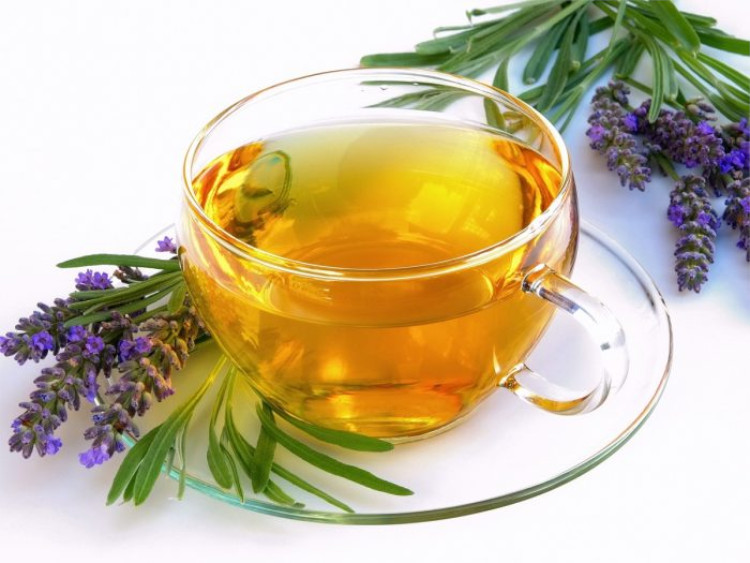
Lavender is widely known for its mood-stabilizing and sedative effects. But did you know that it may be as effective as some medications at relieving anxiety? Researchers in one 2010 study trusted Source found that Silexan, an oral lavender capsule preparation, was as effective as lorazepam in adults with GAD.
Lavender is famous for helping to soothe and calm mood. The lavender essential oil has long been used to help treat depression and anxiety in Ayurvedic medicine and other holistic regimens. Lavender extracts are even approved for the treatment of anxiety disorders and depression in Germany.
In one study of the German lavender supplement known as Silexan, researchers found the lavender oil was just as effective as Lorazepam—a sedative prescribed for anxiety symptoms. The research also found that lavender didn’t have the drowsy side effects associated with many anxieties and depression medications. That means you can enjoy this tea all day long while still being able to focus and work.
Lavender tea emits a deliciously floral aroma that helps induce relaxation. Additional research shows that the scent of lavender can help improve sleep quality by increasing the amount of time spent in deep sleep cycles.
4. Passionflower Tea for Anxiety and Depression
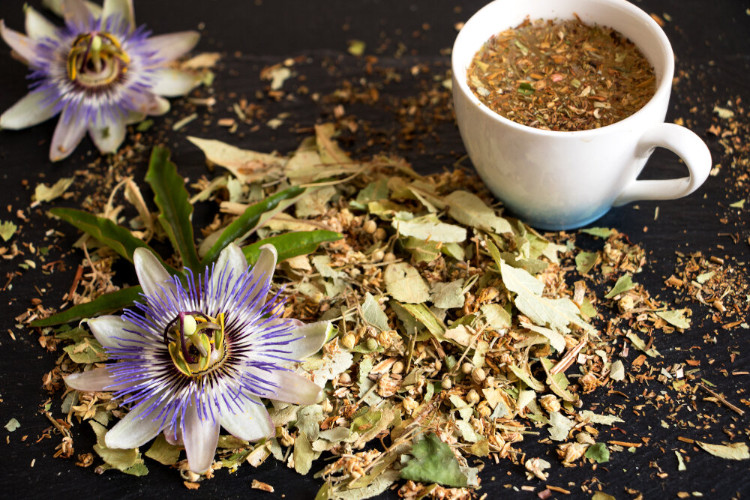
Passionflower has long been used to improve sleep quality. It may also help ease symptoms of anxiety. Researchers in one 2017 study found that a passionflower supplement worked and a mainstream medication for reducing stress in people having dental work.
Passionflower tea is made from the petals of the passionflower plant. The plant has long been used in tinctures and supplement forms to treat anxiety, seizures, and hysteria. Before 1978, passionflower was approved by the FDA as an over-the-counter sleep aid and sedative.
A double-blind, placebo-controlled study published in Phytotherapy Research found that drinking passionflower tea helped to improve sleep quality. Like other herbal teas, passionflower helps boost GABA levels, which induce relaxation and enhance sleep quality.
5. Valerian Root Tea for Anxiety and Depression
Valerian root is commonly used as an herbal remedy for insomnia and other sleep disorders. It may help relieve anxiety-related sleeplessness, but research has been mixed.

One 2015 study found that valerian extract reduced anxiety in women undergoing a medical procedure. Valerian tea is made from the roots of the valerian plant. It boasts a potent, earthy flavor with an aroma that is refreshing and contains notes of pine. The intense flavor of the tea may be a bit overwhelming for some palettes, but the tea flavor can be balanced with the addition of a touch of raw honey.
Valerian root has been a staple of herbal remedies in the treatment of anxiety and depression symptoms. One study showed that valerian extract helped to decrease anxiety before surgery.
6. Green Tea for Anxiety and Depression

Green tea is high in l-theanine, an amino acid that might reduce anxiety. One 2017 study found that students who drank green tea experienced consistently lower stress levels than students in the placebo group.
Green tea is one of the most well-researched teas on the market. Research has demonstrated its potential health benefits in the realms of heart diseases, cancer prevention, and immune system health.
Green tea contains an amino acid known as l-theanine. This amino acid helps to slow the absorption of caffeine and induces a natural calming effect. Studies show l-theanine may also have a natural anti-anxiety effect on the nervous system. A pilot study found that green tea works directly on the nervous system to induce calm. The researchers found that green tea inhibited a-amylase activity—a marker of stress.
7. Peppermint Tea for Anxiety and Depression
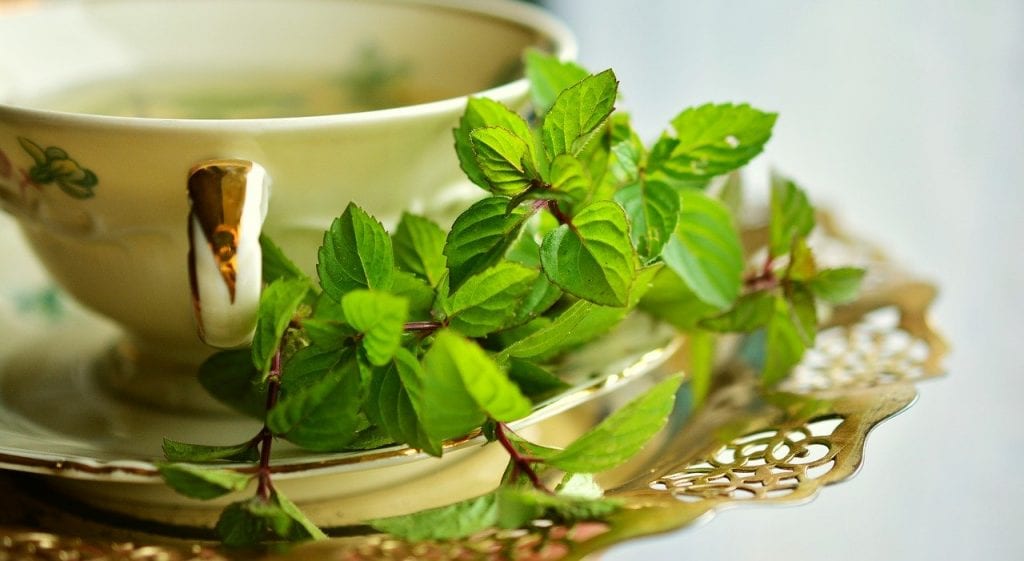
This classic garden plant can be used for more than just seasoning. Some research suggests that the aroma may reduce feelings of frustration, anxiety, and fatigue. A separate study finds that inhaling the scent of peppermint oil may soothe anxiety in people who were hospitalized for heart attack and childbirth. Peppermint tea boasts powerful anti-anxiety properties thanks to its refreshing scent. The tea is made by infusing the leaves of the peppermint plant in hot water. The result is a pale green tea that offers a delightfully refreshing aroma with hints of pine and a tingling flavor.
Research shows that the scent of peppermint tea can help induce relaxation and reduce symptoms of depression, anxiety, and chronic stress. The tea boasts anti-inflammatory properties that can help to reduce pain and inflammation. It also offers the same effects on the nervous system as other herbal teas, helping to reduce cortisol levels and boost mood.
8. Ginseng Tea for Anxiety and Depression
Ginseng may not be a universal cure, but research does support certain benefits. For example, one 2013 study suggests that it may help protect the body against the effects of stress. Some research also shows that it might reduce fatigue. Drinking ginseng tea can help to reduce the feeling of exhaustion that often accompanies depression and anxiety. It may also offer protective effects against high-stress levels. Ginseng tea has a slightly bitter flavor that is contrasted by an earthy sweetness. It has hints of carrot and licorice amongst an earthy background.

A randomized, double-blind, placebo-controlled study examined the effects of ginger in 90 subjects with chronic fatigue. Researchers found that ginseng helped improve mood and boosted cognitive performance.
9. Basil Tea for Anxiety and Depression
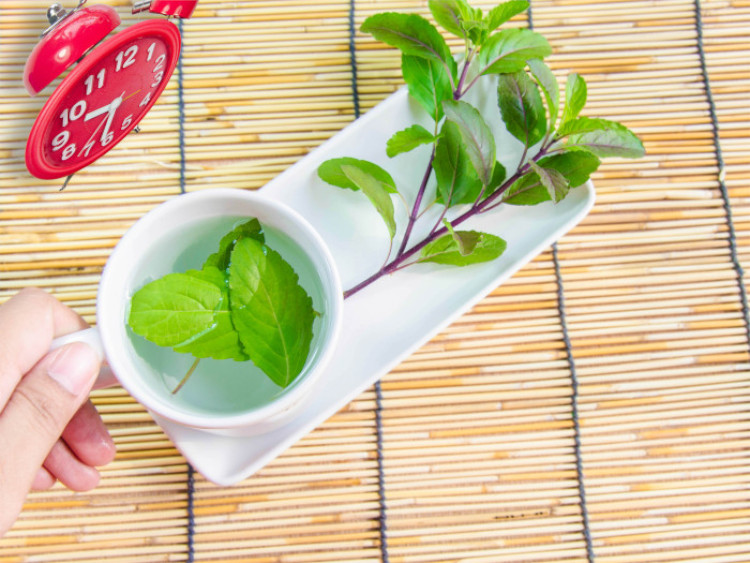
Also called tulsi, holy basil is related to European and Thai basils. Research on its effects on anxiety or stress is limited. One older study found that taking a sacred basil extract decreased symptoms of generalized anxiety disorder. Basil tea is highly aromatic with a flavor profile that includes hints of clove and peppery notes. The herb is commonly used in Thai culinary dishes and boasts extensive health benefits.
Studies show that holy basil tea may be as effective in treating anxiety as diazepam and other antidepressants. The herb has also been shown to improve memory recall and improve the quality of sleep. The tea has also been shown to enhance stress scores in multiple studies significantly. The tea is a staple of Ayurvedic medicine and is often used in the practice of yoga. In these realms, it is believed to nurture and nourish the body while creating a sense of relaxation.
10. Rose Tea for Anxiety and Depression
The smell of roses has long been associated with relaxation, and at least one study supports this. Researchers in one 2016 study found that rose water aromatherapy helped reduce anxiety symptoms in people with end-stage kidney disease.

The naturally uplifting quality of tea makes this an excellent choice for feeling down, depressed, or overly stressed. While there is no clinical research to support the claim, those who believe in the benefits of alternative medicine suggest rose tea may have a beneficial effect on those experiencing depression. The natural sedative property of rose tea makes it an excellent beverage to finish a night, allowing it to reduce stress and regulate sleep patterns and Circadian rhythm. Suppose you have insomnia or regularly have disturbed or interrupted sleep, trying the rose tea before bed. You may find it gives you a good night’s sleep!
Rounding Off: The Best Tea for Anxiety and Depression?
Some herbal teas can help take the edge off occasional stress and anxiety, while others may be better used as a routine complementary therapy for an underlying condition. It’s important to remember that what works for one person may not work for you. Finding the proper herbal tea or herbal tea blend can take time.
Although herbal teas are technically different from supplementary capsules, oils, and tinctures, interactions are still possible. You should always talk with a doctor or other healthcare provider before adding herbal tea to your routine.



